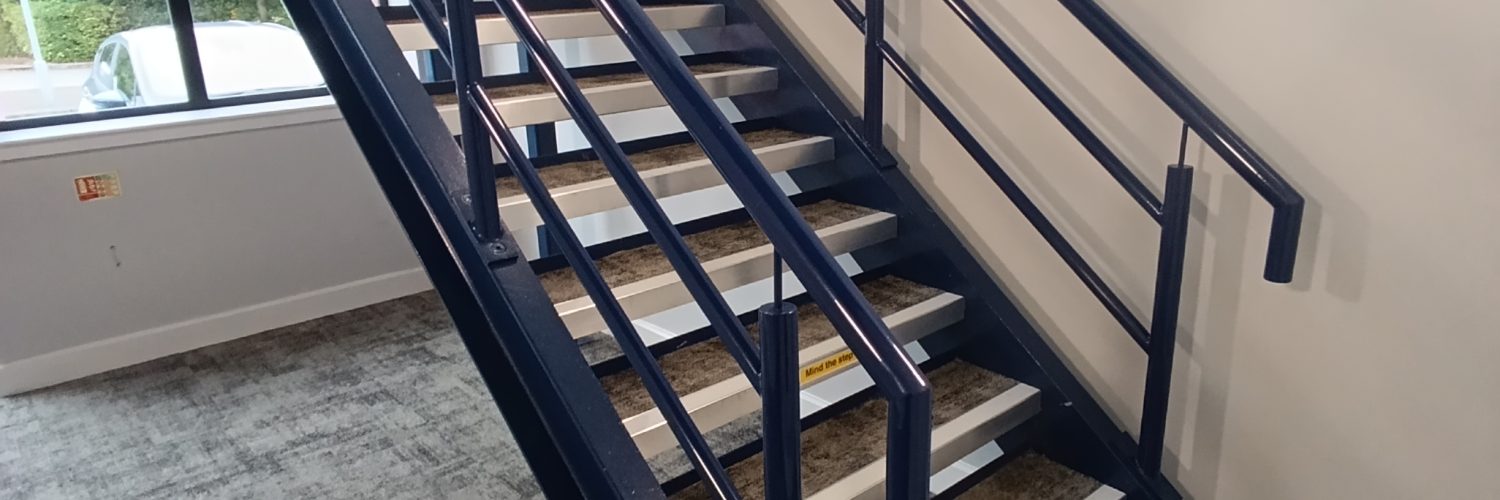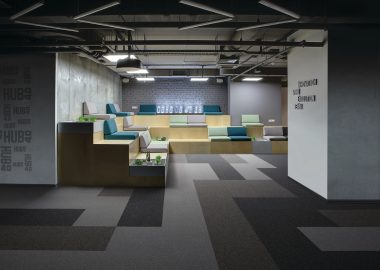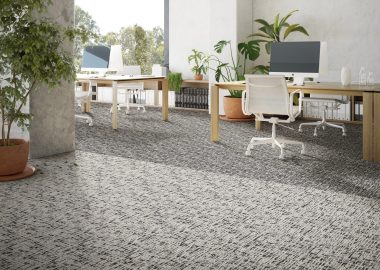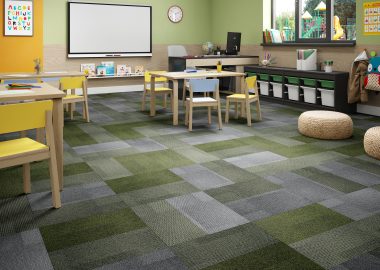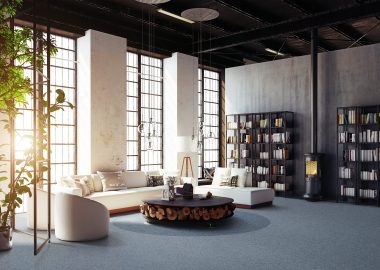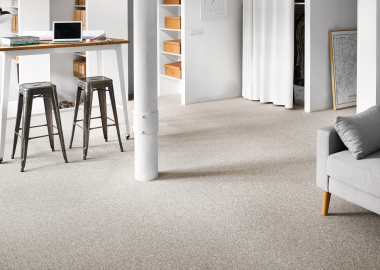When it comes to using carpet for stairs, carpet tiles present a versatile and practical alternative to traditional sheet carpets. Here’s a detailed look at why staircase carpet tiles are ideal.
This guide will cover the following:
- Benefits of Carpet Tiles on Stairs
- How to Measure Your Stairs for Carpet Tiles
- How to Choose the Right Carpet Tiles
- Are Carpet Tiles Durable?
- Are Carpet Tiles Easy to Maintain?
Benefits of Carpet Tiles on Stairs
One of the standout benefits of carpet tiles is their ease of installation and customisation. Unlike bulky rolls of sheet carpet, carpet tiles are manageable and straightforward to handle.
This makes them particularly suitable for staircases, which can be awkward and challenging spaces to cover with traditional carpeting. The nature of carpet tiles allows for precise placement and easy adjustments, ensuring a perfect fit on each step.
How to Measure Your Stairs for Carpet Tiles
To achieve the best results, it’s crucial to measure each stair individually.
Carpet tiles can be cut and sized to fit the exact dimensions of each step, providing a clean and professional finish.
For optimal coverage and to account for any wastage or awkward gaps, it’s advisable to purchase an additional 10-15% of tiles. This extra allowance ensures you have enough material to cover all the area you need.
How to Choose the Right Carpet Tiles
Selecting the right carpet tiles for your stairs is essential for both performance and aesthetics. Here are some factors that may affect your decision.
- Material and Durability: Opt for carpet tiles made from durable materials such as nylon or polypropylene, which are known for their resilience and longevity in high-traffic areas.
- Pile Type: Choose a pile type that suits the environment. Loop pile is durable and hides dirt well, while cut pile offers a softer, more luxurious feel.
- Backing Type: Ensure the backing provides adequate support and adhesion for stairs. PVC or bitumen backings are commonly used for their stability and durability.
- Design and Colour: Select colours and patterns that complement the overall décor of the space while considering practical aspects like stain resistance and ease of cleaning.
Quality and Warranty: Invest in high-quality carpet tiles that come with a substantial warranty, reflecting the manufacturer’s confidence in their product’s durability.
Are Carpet Tiles Durable?
Commercial settings, such as schools and offices, experience a high volume of foot traffic. Carpet tiles designed for these environments are built to withstand heavy use while maintaining their appearance and functionality. Investing in higher quality tiles as they are more durable and capable of enduring constant wear and tear.
High-quality carpet tiles offer impressive longevity, typically lasting between 10 to 12 years under normal commercial use. This makes them a cost-effective solution in the long term.
While cheaper options might seem appealing initially, they often require more frequent replacements and can end up costing more over time. High-quality carpet tiles not only last longer but also maintain their aesthetics and structural integrity, providing better value for your investment.
The longevity of the tile can also be improved by using the correctly sized nosing, depending on the thickness of the tile. This will protect the tile edge and ensure health and safety regulations are met.
Are Carpet Tiles Easy to Maintain?
In a commercial environment, flooring can be subjected to spills, stains, and other forms of damage. Carpet tiles offer a practical advantage in such scenarios, as damaged tiles can be individually replaced without the need to disturb the entire carpeted area. This makes repairs quick and efficient, ensuring that your stairs remain safe and visually appealing with minimal downtime.
Regular cleaning and occasional replacement of damaged tiles are all that’s needed to keep your carpet tiles looking fresh and new.
Carpet tiles are an excellent choice for commercial staircases, offering a range of benefits that include ease of installation, precise customisation, durability, and cost-effective maintenance. They are particularly well-suited to high traffic areas and provide a practical solution that can withstand the demands of a busy commercial environment.
